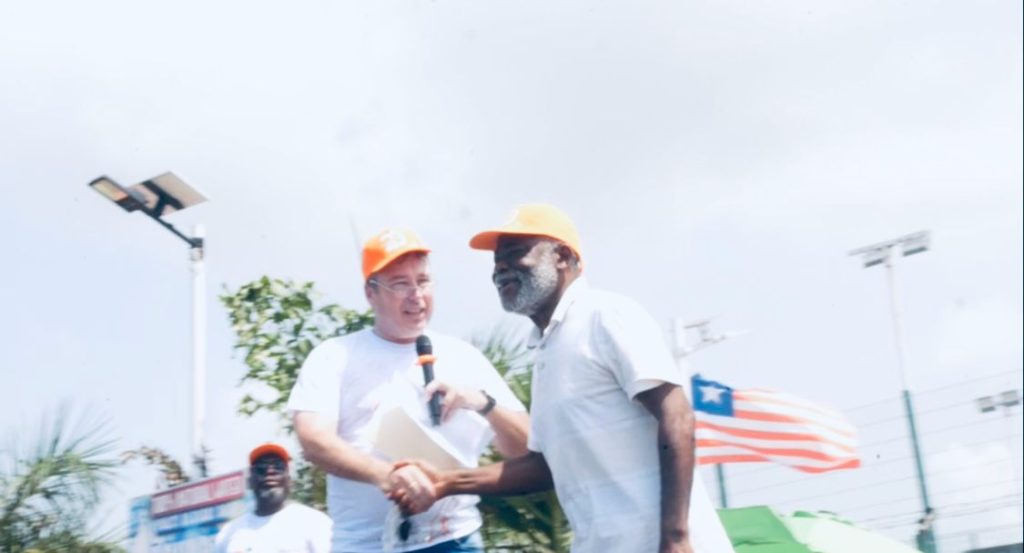ArcelorMittal Liberia’s 20th-anniversary celebration served as a poignant reflection on the company’s transformative impact on Liberia, particularly its instrumental role in revitalizing the nation’s railway system. The narrative is deeply interwoven with the personal journey of James Gibson, the company’s first employee, who witnessed firsthand the evolution of ArcelorMittal Liberia from its humble beginnings in a hotel room to its current position as a cornerstone of the Liberian mining sector. Gibson’s recollections underscore the magnitude of the challenge faced in resuscitating the dilapidated railway, a critical element in the company’s operational success. His account emphasizes not only the physical reconstruction of the railway but also the diplomatic efforts required to secure government support and resources for the project.
The dilapidated state of Liberia’s railway infrastructure prior to ArcelorMittal’s intervention is a central theme in Gibson’s narrative. He vividly portrays a railway on the brink of collapse, ravaged by looting and neglect. His efforts to persuade the Liberian government to allocate resources for its rehabilitation were pivotal. Gibson’s success in convincing key figures within the government, including then-chairman Gyude Bryant, to permit the importation of essential railway materials highlights the complex interplay between private enterprise and government collaboration in post-conflict reconstruction. His account underscores the essential contribution of ArcelorMittal in preserving a vital national asset that was otherwise facing total disintegration.
ArcelorMittal Liberia’s two decades of operation have witnessed significant investments in the Liberian economy, extending far beyond the mining sector. The company has injected billions of dollars into the country, creating thousands of jobs and stimulating ancillary industries. The ongoing Phase Two expansion plan promises to further amplify this impact, dramatically increasing iron ore production and strengthening Liberia’s position in the global mining landscape. This ambitious project encompasses the construction of new processing plants, expansion of the rail network, and modernization of port facilities in Buchanan, all of which are poised to generate increased export revenue for Liberia.
The company’s commitment to sustainable development is manifest in its multifaceted approach to community engagement. ArcelorMittal Liberia has implemented numerous programs aimed at fostering local capacity building, including vocational training and career development initiatives for Liberian employees. Beyond employment, the company has invested in critical social infrastructure, supporting improvements in education, healthcare, and community development projects in the areas surrounding its operations. This commitment to social responsibility underscores the company’s recognition of its role not just as an economic engine, but also as a partner in Liberia’s broader societal development.
ArcelorMittal Liberia’s investment in rail infrastructure represents a substantial contribution to the country’s logistical capabilities. The extensive rehabilitation and expansion of the rail network, a significant undertaking in its own right, has transformed it into one of the most modern transportation systems in Liberia. The company’s willingness to share this infrastructure with other businesses signifies a commitment to fostering collaborative economic growth and encouraging broader industrial development within the region. This open-access approach to the rail network has the potential to stimulate economic diversification and unlock new opportunities for other sectors in Liberia.
The story of ArcelorMittal Liberia is an intertwined narrative of corporate investment, infrastructural development, and national progress. James Gibson’s personal reflections provide a powerful human dimension to this story, highlighting the dedication and perseverance that underpinned the company’s success. As ArcelorMittal Liberia celebrates its 20th anniversary, its ongoing commitment to economic growth, job creation, and infrastructure development underscores its enduring partnership with Liberia. The company’s vision for the future, exemplified by the Phase Two expansion plan, promises continued contributions to Liberia’s economic prosperity and reinforces its role as a key player in the country’s long-term development. The company’s journey over the past two decades stands as a testament to the transformative potential of responsible corporate engagement in a developing nation.














